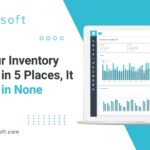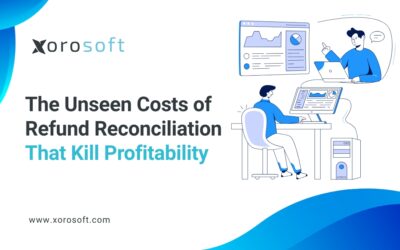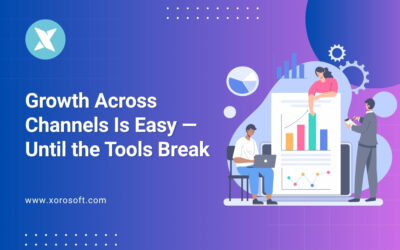
Introduction to ERP Systems
In today’s fast-paced and highly competitive business landscape, organizations are constantly seeking ways to improve their operational efficiency and stay ahead of the curve. One tool that has emerged as a game-changer in this regard is the Enterprise Resource Planning (ERP) system. An ERP system is a suite of integrated software applications that automate and streamline core business processes, such as finance, human resources, inventory management, and customer relationship management. By providing a centralized database and real-time visibility into various facets of a business, ERP systems enable companies to make data-driven decisions, enhance collaboration, and drive productivity.
Understanding the Benefits of ERP Systems
The adoption of an ERP system brings numerous benefits to organizations across industries. Firstly, it eliminates the need for multiple standalone systems by integrating all departments and functions into a single unified platform. This integration not only enhances data accuracy but also reduces manual data entry and duplication, saving time and minimizing errors. Furthermore, ERP systems provide real-time data and reporting capabilities, enabling stakeholders to access up-to-date information and make informed decisions quickly. This level of visibility and transparency helps organizations optimize their operations, streamline workflows, and improve overall efficiency.
Another significant advantage of ERP systems is their ability to automate repetitive tasks and workflows. By automating processes such as order management, procurement, and payroll, organizations can free up valuable time for employees to focus on more strategic and value-added activities. Moreover, ERP systems support effective resource allocation by providing insights into capacity planning, demand forecasting, and inventory management. This allows organizations to optimize their resources, reduce costs, and improve customer satisfaction through timely and accurate order fulfillment.
The Role of Artificial Intelligence in ERP Systems
Artificial Intelligence (AI) is revolutionizing the way businesses operate, and ERP systems are no exception. AI technology has the potential to enhance the capabilities of ERP systems by enabling them to learn from data, recognize patterns, and make intelligent predictions. For example, AI-powered algorithms can analyze historical sales data to forecast future demand, helping organizations optimize their inventory levels and avoid stockouts or excess inventory. Similarly, AI can automate the process of categorizing and analyzing customer feedback, allowing companies to identify trends, improve products and services, and enhance customer satisfaction.
Furthermore, AI can facilitate predictive maintenance by analyzing sensor data from machinery and equipment. By identifying potential failures or maintenance needs in advance, organizations can schedule maintenance activities proactively, minimizing downtime and reducing maintenance costs. AI can also play a crucial role in enhancing supply chain management by analyzing external factors such as weather conditions, transportation delays, and market trends. This analysis can help organizations make more accurate demand forecasts, optimize transportation routes, and mitigate supply chain disruptions.
How ERP Systems are Transforming Industries
The impact of ERP systems on industries is far-reaching and transformational. Let’s explore some examples of how ERP systems are revolutionizing various sectors:
Manufacturing Industry
The manufacturing industry is one of the primary beneficiaries of ERP systems. By integrating production planning, inventory management, and quality control, ERP systems enable manufacturers to streamline their processes, reduce lead times, and improve product quality. Real-time visibility into production processes allows manufacturers to identify bottlenecks, optimize resource utilization, and ensure timely delivery. Additionally, ERP systems provide tools for tracking and tracing components and materials, enabling manufacturers to comply with regulatory requirements and maintain product safety and quality standards.
Retail Industry
In the retail industry, ERP systems play a critical role in managing complex supply chains and optimizing inventory levels. By integrating sales, inventory, and procurement processes, retailers can ensure that the right products are available at the right time and in the right quantities. Moreover, ERP systems enable retailers to analyze customer data and purchasing patterns, allowing them to personalize marketing campaigns, improve customer loyalty, and increase sales. Additionally, real-time inventory visibility helps retailers reduce stockouts and overstock situations, minimize carrying costs, and improve cash flow.
Healthcare Industry
In the healthcare industry, ERP systems enhance patient care and optimize resource utilization. By integrating patient records, scheduling, and billing processes, ERP systems enable healthcare providers to streamline administrative tasks, reduce paperwork, and improve patient outcomes. Real-time access to patient data allows healthcare professionals to make accurate diagnoses, prescribe appropriate treatments, and monitor patient progress effectively. Furthermore, ERP systems facilitate efficient inventory management of medical supplies, ensuring that hospitals and clinics have the necessary equipment and medications at all times.
Introducing Xorosoft ERP: A Revolutionary Solution
Xorosoft ERP is a state-of-the-art ERP solution that combines the power of artificial intelligence with robust functionality to deliver unparalleled efficiency and agility to businesses. With its modular design and customizable features, Xorosoft ERP can be tailored to meet the specific needs of organizations across industries. Whether you’re a small startup or a multinational corporation, Xorosoft ERP provides a comprehensive suite of tools and modules to streamline your operations, optimize resource allocation, and drive growth.
Key Features of Xorosoft ERP
Xorosoft ERP offers a wide range of features and modules that empower organizations to achieve operational excellence. Some key features of Xorosoft ERP include:
1. Integrated Central Database
Xorosoft ERP provides a centralized database that integrates all departments and functions, enabling seamless data sharing and collaboration. This eliminates data silos and ensures data accuracy, reducing errors and duplicate entries.
2. Real-time Reporting and Analytics
With Xorosoft ERP, organizations can access up-to-date reports and analytics in real-time. This empowers stakeholders to make data-driven decisions quickly, identify trends, and take proactive measures to optimize their operations.
3. AI-powered Demand Forecasting
Xorosoft ERP leverages AI algorithms to analyze historical data and forecast future demand accurately. This helps organizations optimize their inventory levels, reduce stockouts, and improve customer satisfaction through timely order fulfillment.
4. Streamlined Procurement and Supplier Management
Xorosoft ERP streamlines the procurement process by automating purchase requisitions, vendor selection, and purchase order creation. It also facilitates effective supplier management by providing insights into supplier performance, contract management, and price negotiations.
5. Efficient Financial Management
Xorosoft ERP’s accounting module simplifies financial processes such as general ledger management, accounts payable/receivable, and financial reporting. The integration of AI algorithms enables the system to identify anomalies, detect fraud, and provide accurate financial forecasts.
Enhancing Efficiency with Xorosoft ERP’s Inventory Management System
One of the key modules of Xorosoft ERP is its advanced inventory management system. By integrating inventory data across multiple locations, Xorosoft ERP enables organizations to optimize their inventory levels, reduce carrying costs, and improve order fulfillment. The inventory management system provides real-time visibility into inventory levels, stock movements, and replenishment requirements, allowing organizations to make proactive decisions and avoid stockouts or excess inventory.
Moreover, Xorosoft ERP’s inventory management system leverages AI technology to forecast demand accurately. By analyzing historical sales data, market trends, and external factors, the system can predict future demand and recommend optimal inventory levels. This AI-powered demand forecasting helps organizations optimize their inventory investments, reduce wastage, and improve customer satisfaction by ensuring timely availability of products.
Streamlining Financial Processes with Xorosoft ERP’s Accounting Module
Another critical module of Xorosoft ERP is its comprehensive accounting system. This module simplifies financial processes and provides organizations with accurate and timely financial information. Xorosoft ERP’s accounting module automates tasks such as general ledger management, accounts payable/receivable, and financial reporting, reducing manual effort and minimizing errors.
Furthermore, Xorosoft ERP leverages AI technology to enhance financial management. The system can analyze financial data, detect anomalies or fraudulent activities, and provide accurate financial forecasts. This AI-powered analysis helps organizations improve financial decision-making, identify cost-saving opportunities, and mitigate financial risks.
How Xorosoft ERP is Revolutionizing the Industry
Xorosoft ERP is revolutionizing the industry by combining the power of AI with robust ERP functionality. The integration of AI technology enables organizations to harness the full potential of their data, make intelligent predictions, and optimize their operations. By automating repetitive tasks, streamlining processes, and providing real-time visibility, Xorosoft ERP empowers organizations to achieve unprecedented efficiency and agility.
Moreover, Xorosoft ERP’s modular design and customizable features make it suitable for organizations of all sizes and industries. Whether you’re a manufacturer, retailer, or service provider, Xorosoft ERP can be tailored to meet your specific needs and drive your business forward.
Choosing the Right ERP Solution for Your Business
When selecting an ERP solution for your business, it’s essential to consider your specific requirements, industry, and future scalability. Here are some key factors to keep in mind:
-
Functionality: Look for an ERP solution that offers the necessary modules and features to support your core business processes. Consider your industry-specific requirements and ensure that the ERP system can address them effectively.
-
Scalability: Choose an ERP solution that can grow with your business. As your organization expands, you need a system that can handle increased data volumes, user load, and transaction volumes without compromising performance.
-
Integration Capabilities: Ensure that the ERP system can integrate seamlessly with other applications and systems that you use. This allows for smooth data flow and eliminates the need for manual data entry or duplication.
-
Vendor Reputation and Support: Research the reputation of the ERP vendor and assess their level of customer support. Look for testimonials, case studies, and customer reviews to gauge the vendor’s track record and customer satisfaction levels.
Implementing an ERP System: Best Practices and Challenges
Implementing an ERP system can be a complex and challenging process, but following best practices can help ensure a successful implementation. Here are some key best practices to consider:
-
Define Clear Objectives: Clearly define your goals and objectives for implementing an ERP system. This will help you align your implementation strategy with your business objectives and ensure that the system delivers the desired outcomes.
-
Engage Stakeholders: Involve key stakeholders from different departments and levels of your organization in the implementation process. Their input and buy-in are crucial for successful adoption and usage of the ERP system.
-
Plan and Prioritize: Develop a detailed implementation plan that outlines the sequence of activities, timelines, and resource allocation. Prioritize critical processes and functionalities to ensure a phased and manageable implementation.
-
Training and Change Management: Provide comprehensive training to employees on how to use the ERP system effectively. Additionally, develop a change management strategy to address resistance to change and ensure smooth transition and user adoption.
Despite the potential benefits, implementing an ERP system can also present challenges. Some common challenges include resistance to change, data migration complexities, and system integration issues. However, with proper planning, stakeholder engagement, and support from experienced implementation partners, these challenges can be overcome, leading to a successful ERP implementation.
The Future of ERP Systems with Artificial Intelligence
As technology continues to advance, the future of ERP systems looks promising, with artificial intelligence playing a vital role. Here are some trends that are shaping the future of ERP systems:
-
Predictive Analytics: AI-powered predictive analytics will enable ERP systems to generate accurate forecasts, anticipate customer demands, and optimize resource allocation. This will result in improved operational efficiency, reduced costs, and enhanced customer satisfaction.
-
Robotic Process Automation: ERP systems will leverage robotic process automation (RPA) to automate repetitive tasks and workflows. RPA can handle rule-based tasks, data entry, and data validation, freeing up employees to focus on more strategic activities.
-
Natural Language Processing: ERP systems will incorporate natural language processing (NLP) capabilities, allowing users to interact with the system using voice commands or written text. This will enhance user experience, improve data accuracy, and enable faster decision-making.
-
Internet of Things Integration: ERP systems will integrate with IoT devices to capture real-time data from sensors and machines. This integration will enable organizations to proactively respond to equipment failures, optimize maintenance schedules, and improve overall operational efficiency.
Conclusion
ERP systems have emerged as a transformative force, revolutionizing industries across the globe. By integrating core business processes, providing real-time visibility, and leveraging artificial intelligence, ERP systems unlock unprecedented efficiency, agility, and competitive advantage. Xorosoft ERP, with its cutting-edge features and AI-powered capabilities, is leading the charge in this digital transformation journey. Whether you’re a manufacturer, retailer, or healthcare provider, Xorosoft ERP empowers your organization to streamline operations, optimize resources, and drive growth. Book a demo with Xorosoft today and unlock the full potential of your business.









